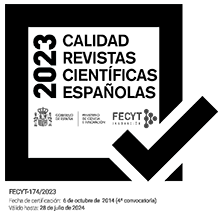Llibertat d’expressió i plataformes digitals: reptes de la regulació de continguts en un entorn global (CA-EN)
Resum
Els drets fonamentals a la llibertat d’expressió i a la llibertat d’informació es troben reconeguts, protegits i delimitats en la pràctica totalitat de les constitucions dels sistemes polítics de les democràcies liberals, entre elles la Constitució espanyola. Aquests drets formen igualment part del quadre fonamental de drets humans establert per les normes de dret internacional. Els intermediaris s’han convertit en els principals actors del procés de difusió i distribució de tot tipus de contingut. També tenen un paper molt destacat a l’hora d’assegurar la “visibilitat” del contingut produït pels mitjans tradicionals. Els interessos que modulen les decisions preses pels intermediaris no són únicament i necessàriament la protecció del dret a la llibertat d’expressió. Els intermediaris són entitats orientades comercialment i segueixen models de negoci basats en la venda de publicitat, entre altres aspectes. Els sistemes legals amb més influència en el món (particularment els de la Unió Europea i els Estats Units) incentiven la moderació del contingut per part de les plataformes, garantint que no són penalitzades com a conseqüència del contingut subministrat per tercers o a causa de l’adopció de determinades mesures orientades a eliminar contingut il·legal o contingut inadequat. Per aquests motius, els intermediaris tenen un paper molt important en la creació de les condicions per a l’exercici del dret a la llibertat d’expressió en línia.
Paraules clau
Cites
Balkin, Jack. (2018). Free Speech is a Triangle. Yale Law School, Public Law Research Paper, 640.
Barata Mir, Joan. (2020a). Positive Intent Protections: Incorporating a Good Samaritan principle in the EU Digital Services Act. Center for Democracy and Technology.
Barata Mir, Joan. (February 25, 2020b). Regulating content moderation in Europe beyond the AVMSD. [Blog post]. LSE Blog. Bietti, Elettra. (June 1, 2020). Free Speech is Circular. [Blog post]. Medium.
Bychawska-Siniarska, Dominika. (2017). Protecting the right to freedom of expression under the European Convention of Human Rights. A handbook for legal practitioners. Strasbourg: Council of Europe.
Goldman, Eric. (2019). Why Section 230 is better than the First Amendment. Notre Dame Law Review Reflection, 95(1), 33-46.
Goldman, Eric. (March 2, 2020). YouTube Isn’t a State Actor (DUH) – PragerU v. Google. [Blog post]. Technology & Marketing Law Blog.
De Gregorio, Giovanni. (2020). The Rise of Digital Constitutionalism in the European Union. International Journal of Constitutional Law. Awaiting publication.
Helberger, Natali, Leerssen, Paddy, & Van Drunen, Max. (May 29, 2019). Germany proposes Europe’s first diversity rules for social media platforms. [Blog post]. LSE Blog.
Kearney, Michael G. (2007). The Prohibition of Propaganda for War in International Law. Oxford: Oxford University Press.
Keller, Daphne. (2018a). Who do you sue? Hoover Institution. Aegis Series Papers, 1902.
Keller, Daphne. (2018b). Internet Platforms. Observations on Speech, Danger and Money. Hoover Institution Aegis Series Paper, 1807.
Kettemann, Matthias C., & Tiedeke, Anne Sophie. (2019). Back up: Can Users Sue Platforms to Reinstate Deleted Content? A Comparative Study of US and German Jurisprudence on “Must Carry”. Internet Policy Review, 9(2).
Leerssen, Patrick. (2015). Cut Out by The Middle Man. The Free Speech Implications of Social Network Blocking and Banning in the EU. JIPITEC 1, 99-119.
Mchangama, Jacob, & Alkiviadou, Natalie. (2020). The Digital Berlin Wall: How Germany (accidentally) created a prototype for global online censorship – Part Two. Copenhagen: Justitia.
Perrigo, Billy. (2020a). These Tech Companies Managed to Eradicate ISIS Content. But They’re Also Erasing Crucial Evidence of War Crimes. Time.
Perrigo, Billy. (May 4, 2020b). When Content Moderation Hurts. [Blog post]. Mozilla Foundation.
Quintais, João Pedro, Frosio, Giancarlo, van Gompel, Stef, Hugenholtz, P. Bernt, Husovec, Martin, Jütte, Bernd Justin, & Senftleben, Martin. (2019). Safeguarding User Freedoms in Implementing Article 17 of the Copyright in the Digital Single Market Directive: Recommendations from European Academics 10 (2020). JIPITEC, 277.
Radsch, Courtney. (2020). GIFCT: Possibly the Most Important Acronym You’ve Never Heard Of. Hint: It Involves the Internet and Terrorism. Just Security.
Richter, Andrei. (2016). Defining media freedom in international policy debates. Global Media and Communication, 12(2), 127-142.
Smith, Graham. (June 24, 2020a). Online Harms Revisited. [Blog post]. Cyberleague.
Smith, Graham. (February 16, 2020b). Online Harms Deconstructed – the Initial Consultation Response. [Blog post]. Cyberleague.
York, Jillian C., & Gullo, Karen. (March 6, 2018). Offline/Online Project Highlights How the Oppression Marginalized Communities Face in the Real World Follows Them Online. [Blog post]. Electronic Frontier Foundation.
DOI: http://dx.doi.org/10.2436/rcdp.i61.2020.3519





